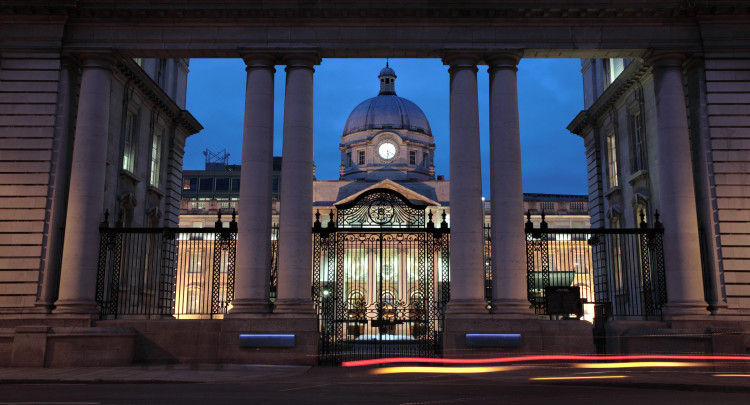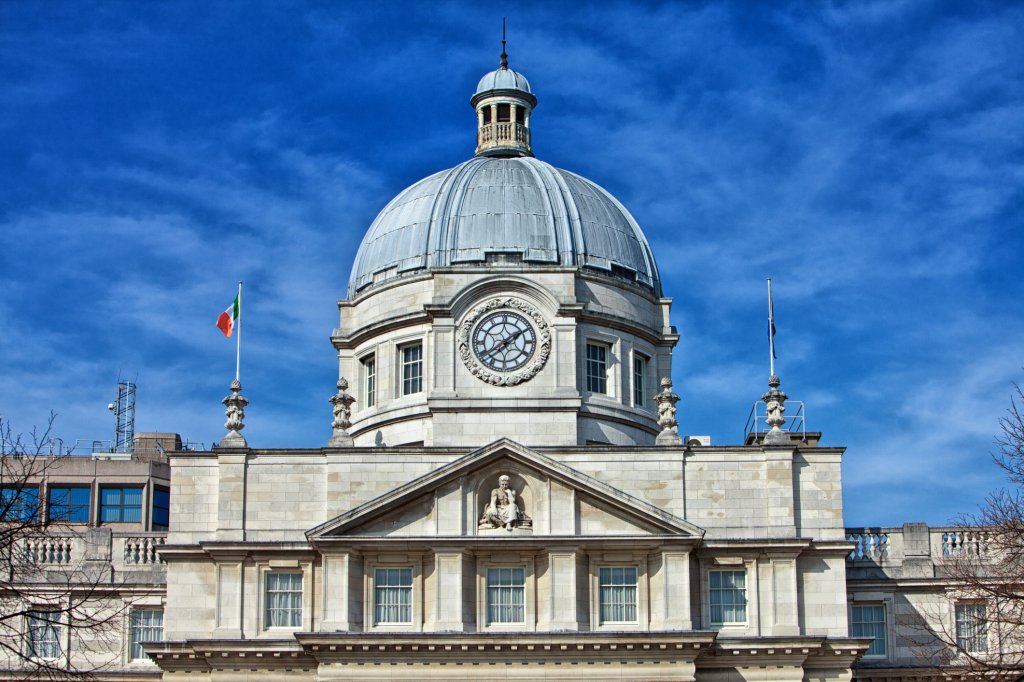This week, the Irish Government held the National Economic Dialogue 2022, which represents the main method of public consultation and discussion on the forthcoming Budget 2023. Hosted jointly by the Department of Finance and Department of Public Expenditure and Reform, the National Economic Dialogue (NED) this year focussed on the theme of ‘Building Economic Resilience to deal with International Challenges’. The recommendations of the seven thematic NED breakout sessions directly feed into the Irish budgetary process, via the Summer Economic Statement expected in July, and Budget 2023, expected in October.
IRISH ECONOMIC CHANGE
Ireland demonstrated unprecedented levels of economic resilience during the COVID-19 pandemic, largely based upon its open, trading economy and the strong presence of multinational firms in the ICT and pharmaceutical space, two sectors which experienced strong growth during the pandemic. For instance, the Government has already hit its target of getting 2.5 million people in employment, with unemployment at just 4.7%. Domestic demand and GDP are on the rise, investment is rebounding, and household balance sheets have improved on the whole.
However, despite this resilient recovery, Ireland’s economic offering is under threat amidst a challenging international environment. Aside from some €230 billion in public debt, one of the highest in the world per capita, changes to interest rates and inflation have increased Ireland’s sovereign borrowing costs considerably. This places additional pressure on the public finances and enhances the need to reduce the country’s reliance on corporate tax receipts. One quarter of the Exchequer’s tax receipts come from corporation tax, and half of this originates from just ten large firms. This concentrated reliance on corporation tax, accompanied by the implementation of the OECD International Tax Agreement, increasing Ireland’s competitive 12.5% rate to a global 15% rate, presents challenges in the near to medium term.
Other such challenges include the war in Ukraine, the move from ‘just in time’ to ‘just in case’ supply chains, the contraction of globalisation more broadly, the continuing impact of Brexit and the increasing spectre of inflation. As a small, open, free-trading economy, Ireland is particularly susceptible to this, and consequently, Budget 2023 will have to address these wider challenges, while simultaneously further policy objectives.
NED: SECTOR BY SECTOR
The NED brings together stakeholders from across the Irish economic spectrum, and as such it was broken up into seven sessions dealing with topics including climate policy, housing, the agri-food sector and the labour market, each chaired by a relevant Government Minister. On the broader economy, stakeholders examined how Ireland could reduce its reliance on corporate tax receipts in an inflationary economic atmosphere. On enterprise policy, participants discussed how Ireland could become more competitive as a location for FDI, as well as domestically. Regarding climate policy, attendees considered the utility of carbon budgets and how to speed up renewable energy adoption. On housing, participants discussed how to maximise the use of Ireland’s existing housing stock, while ensuring that the Government’s housing supply targets were met to foster economic development. In agri-food, the NED focussed on the impacts of Brexit on the sector, the reform of the CAP and Common Fisheries Policy at EU level and the need to address the impact of the war in Ukraine on food prices. On the labour market, members examined how Ireland could meet its skills needs through reskilling, further education, and talent attraction from overseas.
BUDGET 2023
Bearing in mind the current economic environment, and the significant policy objectives outlined above; a great deal is being asked of Budget 2023. This Budget will be Fianna Fáil Taoiseach Micheál Martin’s last as head of Government. He hands the reins over to Fine Gael Leader and current Tánaiste Leo Varadkar this December.
To use the Taoiseach’s own words, “this Budget will be a cost-of-living budget, and it will also be framed against, and must contribute to, a larger perspective, of medium and longer-term challenges, including climate, demography, housing and public service demands, and economic changes”. He was echoed by Tánaiste Leo Varadkar, who said that “the focus of Budget 2023 must be the cost-of-living crisis without losing sight of long-term challenges like health, housing and climate”.
In essence, Budget 2023 will aim to address immediate concerns such as inflation, energy prices and the cost of living, while also seeking to reorient the Irish economy by furthering policies on climate change, digitalisation and enhancing Ireland’s competitiveness.
With almost four months until Budget Day, the Government will be keen for less economic shocks, so it can focus on a greater economic shift.







